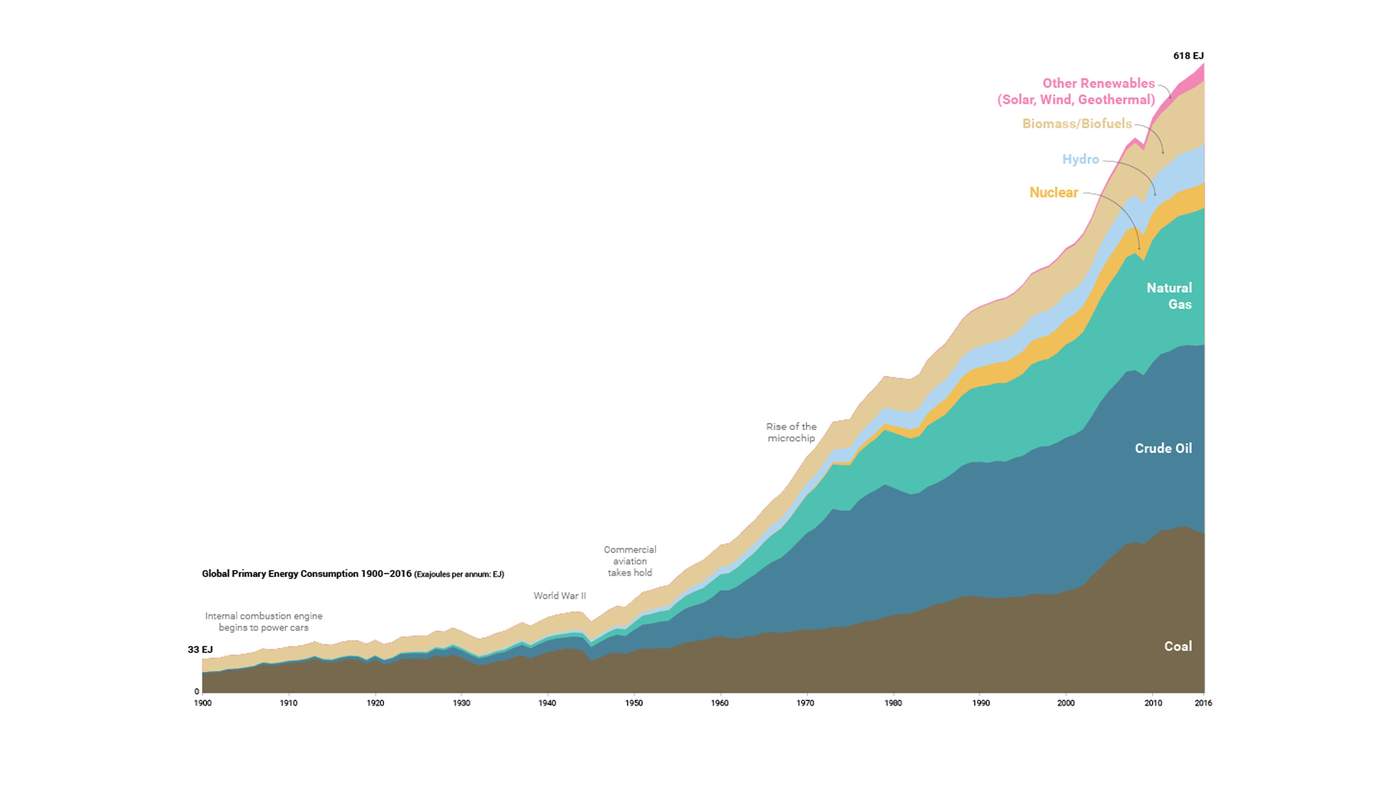The Great Decoupling In Action: Case Studies And Real-World Examples

Table of Contents
Technological Decoupling: The Semiconductor Struggle
The semiconductor industry epitomizes the technological dimension of The Great Decoupling. The race for technological independence is driving nations to invest heavily in domestic chip manufacturing, reducing their reliance on foreign suppliers.
The US Chips and Science Act:
The US Chips and Science Act of 2022 exemplifies this trend. Aiming to revitalize American semiconductor production and diminish dependence on foreign manufacturers, particularly China, the Act offers substantial incentives to boost domestic chip manufacturing.
- Incentives offered: Billions of dollars in subsidies and tax credits are earmarked for companies building or expanding semiconductor fabrication plants (fabs) in the US.
- Impact on global chip supply chains: This initiative could significantly reshape the global distribution of chip production, potentially leading to a more fragmented and less efficient industry in the short term.
- Implications for technological advancement: While aiming to bolster US technological leadership, the Act's success depends on attracting investment and overcoming existing challenges in the semiconductor industry's complex ecosystem. Increased domestic production could also accelerate innovation in specific areas.
China's Semiconductor Ambitions:
Simultaneously, China is aggressively pursuing self-sufficiency in semiconductor production, aiming to break free from dependence on US technology and expertise.
- Investment in R&D: Massive investments are being channeled into research and development to bridge the technological gap with leading nations.
- Challenges faced: China faces significant hurdles, including a shortage of skilled engineers, reliance on foreign equipment, and US sanctions aimed at hindering technological advancements.
- Potential implications for global competition: China's ambition to dominate the semiconductor industry will likely intensify technological rivalry and reshape global competition in the tech sector. This could lead to increased innovation but also heightened geopolitical tensions.
Economic Decoupling: Diversifying Supply Chains
Economic decoupling manifests in the diversification of global supply chains. Companies are actively seeking to reduce reliance on single sourcing and geographically concentrated manufacturing.
Reshoring and Nearshoring Initiatives:
Many companies are implementing reshoring and nearshoring strategies. Reshoring involves bringing manufacturing back to the home country, while nearshoring shifts production to nearby countries.
- Examples of companies reshoring: Several manufacturing companies, particularly in industries like apparel and electronics, have begun shifting production back to the US or Europe to reduce risks and improve supply chain resilience.
- The costs and benefits of reshoring/nearshoring: While reshoring can reduce transportation costs and enhance supply chain visibility, it often comes with higher labor and production costs. Nearshoring offers a compromise, balancing these costs with geographic proximity.
- Impact on employment and trade: Reshoring and nearshoring initiatives can create jobs in developed economies but may lead to job losses in developing nations that previously served as manufacturing hubs. This also affects international trade patterns.
Trade Wars and Their Impact:
Trade disputes and tariffs have significantly accelerated the decoupling process. Protectionist policies aimed at shielding domestic industries from foreign competition disrupt established supply chains.
- Examples of specific trade wars and their consequences: The US-China trade war, marked by escalating tariffs, led to disruptions in various sectors, increased costs for consumers, and forced companies to re-evaluate their supply chain strategies.
- The role of international trade agreements: The effectiveness of existing trade agreements is being challenged, leading to negotiations for new regional agreements and a questioning of the multilateral trading system.
- Impact on consumer prices: Trade wars and protectionist measures often result in increased prices for consumers as goods become more expensive to import or produce domestically.
Geopolitical Decoupling: Shifting Alliances and Strategies
The Great Decoupling extends into the geopolitical realm, causing a reconfiguration of alliances and strategic priorities.
The Rise of Regional Trade Blocs:
Nations are forging new trade agreements and alliances to reduce reliance on existing partnerships. This fosters the growth of regional economic blocs.
- Examples of new trade agreements: The Comprehensive and Progressive Agreement for Trans-Pacific Partnership (CPTPP) and the Regional Comprehensive Economic Partnership (RCEP) are examples of growing regional trade agreements attempting to reduce reliance on traditional global trade networks.
- The political implications of these shifts: The formation of these blocs reflects a shift away from a purely globalized world towards more regionalized economic spheres, impacting political alliances and power dynamics.
- The impact on global power dynamics: The formation of these regional blocs is changing the global balance of power, with some regions gaining economic clout while others face potential marginalization.
Increased Military Spending and Defense:
Increased geopolitical tensions associated with decoupling have led to a significant increase in military spending by many nations.
- Examples of increased military budgets: Many countries, including the US and China, have increased their defense budgets, reflecting concerns about national security and strategic competition.
- The rationale behind this spending: Increased military spending is often driven by the need to protect critical infrastructure, respond to perceived threats, and secure access to essential resources.
- The consequences for global stability: This increase in military spending could potentially exacerbate existing tensions and contribute to global instability.
Conclusion
The Great Decoupling is a multifaceted phenomenon with profound and far-reaching consequences. From the technological struggle for semiconductor dominance to the economic diversification of supply chains and the geopolitical realignment of alliances, the process is reshaping global economics, technology, and geopolitics. The complexities and uncertainties inherent in this ongoing transformation are significant. Its short-term and long-term impacts are still unfolding, requiring continuous analysis and adaptation.
Key Takeaways: Understanding The Great Decoupling requires recognizing its interconnected nature. Technological, economic, and geopolitical factors are intertwined, creating a dynamic and unpredictable environment. The shift toward regionalization and increased competition is likely to persist.
Call to Action: Stay informed about the evolving landscape of The Great Decoupling by following industry experts and analyzing its impact on your specific sector. Further research into the implications of reshoring, nearshoring, and the development of regional trade blocs will be crucial for navigating this transformative era.

Featured Posts
-
 I Control You Analyzing Jack Doohan And Flavio Briatores Netflix Tension
May 09, 2025
I Control You Analyzing Jack Doohan And Flavio Briatores Netflix Tension
May 09, 2025 -
 Liga Chempionov 2024 2025 Prognoz Na Polufinaly I Final Tv Translyatsii Statisticheskiy Analiz
May 09, 2025
Liga Chempionov 2024 2025 Prognoz Na Polufinaly I Final Tv Translyatsii Statisticheskiy Analiz
May 09, 2025 -
 New Uk Immigration Rules Emphasize English Language Skills
May 09, 2025
New Uk Immigration Rules Emphasize English Language Skills
May 09, 2025 -
 10 Film Noir Movies Guaranteed To Grip You
May 09, 2025
10 Film Noir Movies Guaranteed To Grip You
May 09, 2025 -
 Uk Visa Restrictions Report Highlights Potential Nationality Limits
May 09, 2025
Uk Visa Restrictions Report Highlights Potential Nationality Limits
May 09, 2025
